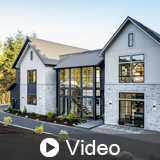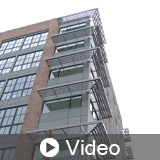Constructing building envelopes designed to withstand extreme weather events and the impact of drastic temperature swings, join us for this one-hour course on building with fiber cement cladding. Participants will examine the importance of building sustainably with fiber cement cladding designed for resiliency to ensure...
Green Business Certification Inc.
Refine By Credit Type
3 Upcoming Webinars
|
Tue Feb 10 - 12:00 pm EST
|
|
Wed Feb 18 - 12:00 pm EST
|
|
Thu Mar 5 - 12:00 pm EST
|
143 Online Courses
Free Course
|
|
This course discusses the impact of buildings on the natural environment and offers insight on designing to minimize those impacts through sun control and mastery of the elements. The discussion emphasizes implementing design methods including specification of technologies such as sunshade and daylighting canopy systems,...
|
Premium Course
|
Are you tired of sustainability webinars and workshops that ignore the elephant in the room? This course confronts environmental reality without corporate greenwashing or cheerful platitudes. We examine climate change, mass extinction, toxic building materials, and institutional failure through the lens of philosophical...
|
|
Deadly hurricanes, blistering heatwaves, melting ice caps, massive crop failures, catastrophic droughts, and significant economic losses are the result of carbon emissions, specifically in the form of carbon dioxide (CO2) and other greenhouse gases. Addressing carbon emissions is crucial to mitigating these devastating e...
|
|
Embark on a captivating journey through urban landscapes in this innovative course that merges sustainability with the psychology of city living. Explore key concepts of deep topography and psychogeography, revealing their influence on urban criticism and human connectedness. Dive into LEED v4.1 BD+C strategies that enha...
|
|
Welcome to an exploration of how space becomes a living, breathing performer in the grand theater of human experience. Spatial dramaturgy represents the fascinating intersection where architecture transcends mere shelter to become narrative, where interior design moves beyond aesthetics to choreograph human emotion and b...
|
|
This comprehensive course examines the emergence and evolution of Eco Brutalism, a contemporary architectural movement that merges the bold, monolithic aesthetics of Brutalist architecture with cutting-edge sustainable design principles. Design professionals will explore how this innovative approach addresses modern envi...
|
|
Many low-income communities have sites that are vacant or underutilized because of perceived stigmas or economic barriers. Building a project on a high-priority redevelopment site can revitalize the neighborhood and bring social and economic benefits to the surrounding community. In this course we explain how to achieve...
|
|
In this one-hour course, we will explore the challenges of creating a sustainable cannabis facility that reduces energy consumption, water usage, and waste. We identify best practices for sustainable cannabis facilities and how hazards may affect building occupants.
|
|
Whole building LCA and carbon analysis play a crucial role in promoting sustainable and low-carbon construction practices. By considering the entire life cycle of a building, these assessments help reduce environmental impacts and contribute to a more sustainable built environment. In this course we explore how project t...
|
|
Join us for an inspiring journey as we explore real-world examples of LEED certified projects that are reshaping our built environment and combating climate change. Through a series of captivating case studies, you'll discover how innovative strategies are dramatically reducing energy and water consumption, creating heal...
|
|
Sustainable kitchen design encompasses environmental, health, and social considerations. In this course, we explore innovative approaches that prioritize energy efficiency, the use of healthy materials, and the enhancement of overall well-being. As the demand for eco-friendly living spaces continues to rise, design profe...
|
|
A century ago, everyone could look up and see a spectacular starry night sky. Now, millions of people across the planet will never experience the majestic night sky where they live. The widespread use of artificial light at night is not only impairing our view of the universe, it negatively affects our environment, our s...
|
|
Embodied carbon is the hidden impact embedded within construction materials and products and contributes significantly to our carbon footprint. By understanding the implications of your specification decisions, you possess the key to not only reducing embodied carbon, but also creating resilient and environmentally consc...
|
|
Is Phoenix on the brink of a desert apocalypse, where relentless heat, dwindling water supplies, and raging wildfires could transform this vibrant city into an uninhabitable wasteland? Explore the critical intersection of climate change, urban design, and sustainability in this course focused on the future of desert metr...
|
|
What if the smallest intervention could transform an entire neighborhood? What if the spaces we design carry hidden psychological and cultural messages that either empower or exclude? This course takes you beyond traditional sustainability metrics to explore five theories that are reshaping how we think about responsible...
|
|
In a world of escalating environmental crises and competing priorities, where does a design professional find the clarity and courage to champion truly sustainable solutions? The answer might be 2,300 years old. This course bridges ancient Stoic philosophy with contemporary sustainable design practice, offering a powerfu...
|
|
Ready to revolutionize your design practice by partnering with the most powerful force in the universe? This dynamic course reveals how entropy—the same principle that governs stars, storms, and ecosystems—has been quietly shaping architecture's most beloved and resilient buildings for decades. Through engaging case stud...
|
|
In this course we describe how project teams can use Environmental Product Declarations (EPDs) for LEED v4.1 projects. Our team describes the environmental impacts referenced in EPDs and how these impacts may affect the planet and its inhabitants. We discuss how EPDs can contribute to the LEED v4.1 BD+C, ID+C, and O+M ra...
|
|
The choices we make when specifying building materials can have significant effects on the planet and human health. The world is facing cataclysmic issues such as climate destabilization, pollution, biodiversity loss, deforestation, and greenhouse gases. Construction produces vast volumes of waste and consumes colossal a...
|

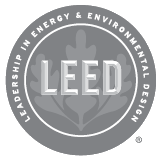

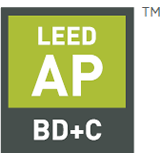
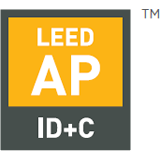
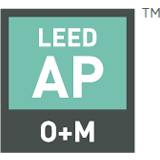

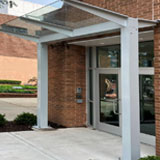
_0.jpg)
